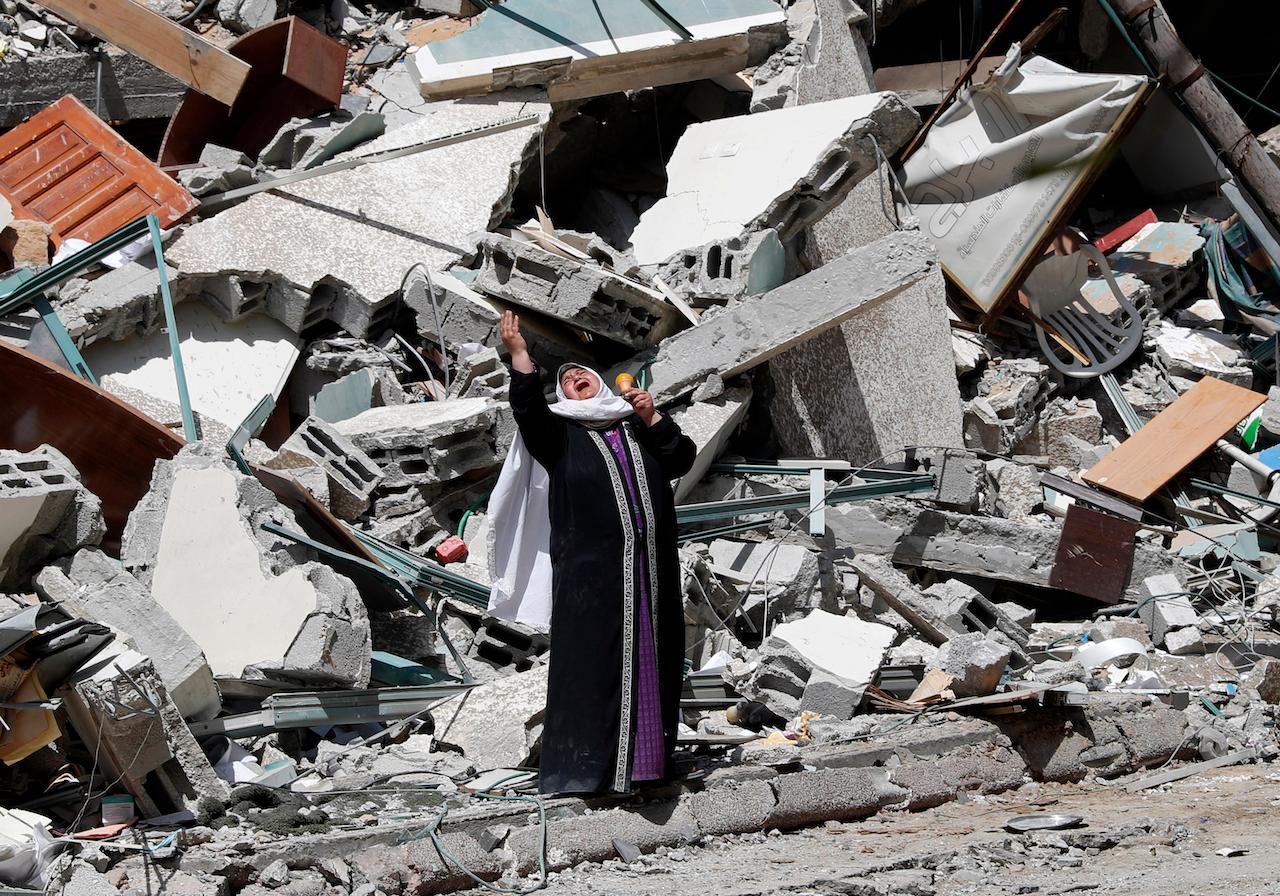Muslim nations condemn Israel but also some of their own club
Some delegates criticise Bahrain, Morocco, Sudan, and the United Arab Emirates for their ties with Israel.
Just In
Muslim nations on Sunday demanded that Israel halt attacks on Gaza, but there was also condemnation for some member countries over their recent recognition of Israel.
A statement by the 57 nations of the Organization of Islamic Cooperation kept closely to the content of previous ones issued by the Saudi-based group, including backing the decades-old call for Palestinians to have their own nation with East Jerusalem as its capital.
The past week has seen some of the worst violence across Israel and the Palestinian territory since the 2014 war in Gaza, with militants launching missiles and Israel pounding the blockaded coastal strip home to two million people.
“The plight of the Palestinian people is the bleeding wound of the Islamic world today,” Afghan Foreign Minister Mohammad Haneef Atmar said.
However, recent normalisation deals between Israel and some nations in the Muslim group provoked criticism from other members, reports the AP.
Some delegates criticised Bahrain, Morocco, Sudan, and the United Arab Emirates.
These Muslim nations reached normalisation deals last year to recognise Israel and work towards closer ties.
Supporters of the Palestinians criticised them for recognising Israel before the formation of an independent Palestinian state.
Turkey’s foreign minister criticised the normalisations, though Israel maintains diplomatic ties with Ankara.
“There are a few who have lost their moral compass and voiced support for Israel,” he said. “If there are half-hearted statements within our own family, how could we criticise others? Who will take our words seriously?”
Hamas, which seized power in Gaza in 2007, did not take part in the video meeting.
Across the Arabian Peninsula, reactions to the destruction in Gaza have been mixed.
In Qatar, home to the Al-Jazeera satellite network, hundreds turned out late Saturday night to listen to a speech by Hamas’ top leader Ismail Haniyeh.
Kuwait’s parliament speaker reportedly spoke with Haniyeh on Saturday, as did Qatar’s foreign minister.
Meanwhile, in Bahrain and the UAE, government-linked media has not been giving the current violence nonstop coverage like other networks in the region.
In Bahrain, civil society groups signed a letter urging the kingdom to expel the Israeli ambassador.
In the UAE, where political parties and protests are illegal, Palestinians have expressed their anger quietly, worried about losing their residency permits. Some Emiratis have also quietly expressed concerns.
Hussein Ibish, a senior scholar at the Washington-based Arab Gulf States Institute, said most Gulf Arab leaders fear Hamas’ rocket fire as “cynical, dangerous, unnecessarily provocative and endangering Israelis and Palestinians in Gaza alike”.
Subscribe to our newsletter
To be updated with all the latest news and analyses daily.
